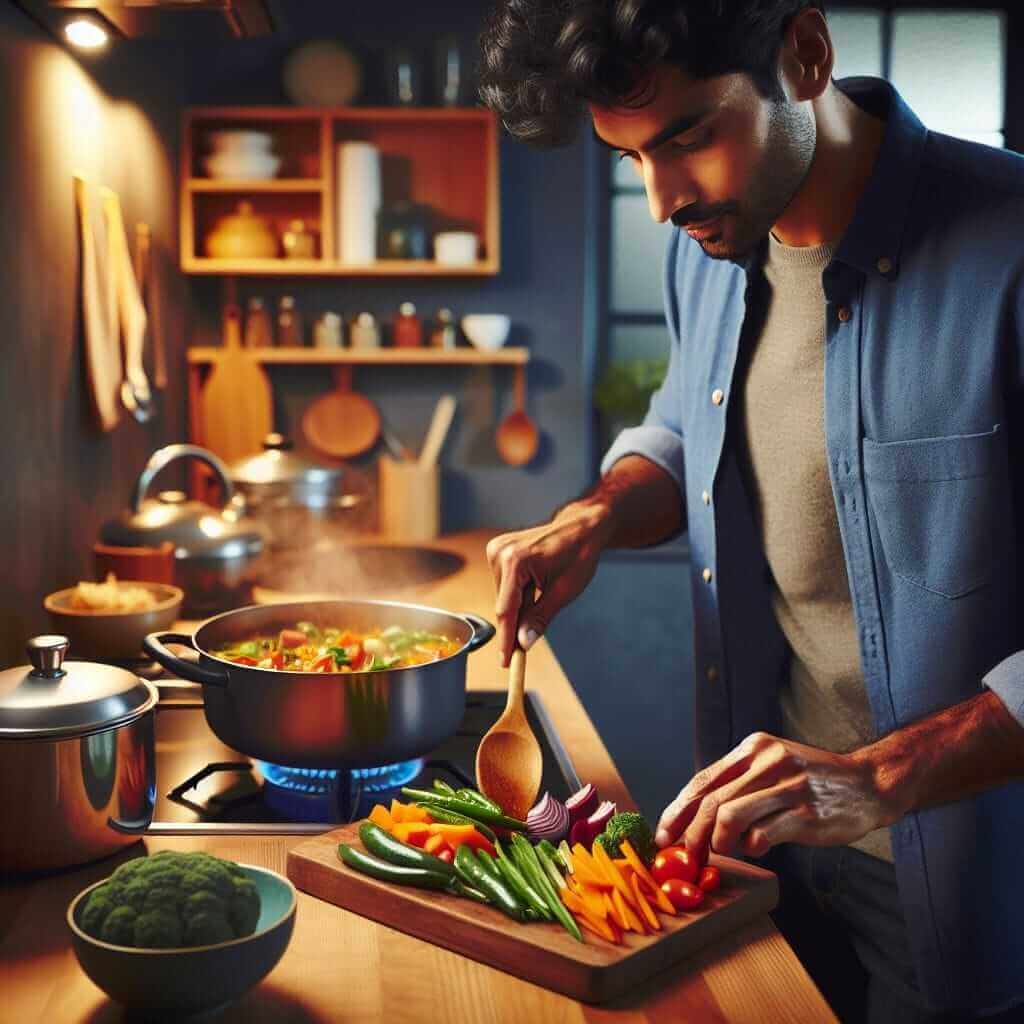As an IELTS instructor with over 20 years of experience, I’ve guided countless students toward success in their IELTS Speaking test. One question I encounter frequently, particularly in Part 1, is “Can you cook?”. While seemingly simple, this question offers a fantastic opportunity to showcase your language skills. Let’s delve into how you can confidently handle this question and create a positive impression on the examiner.
Understanding the Significance of “Can You Cook?” in IELTS Speaking Part 1
The IELTS Speaking test assesses your fluency, vocabulary, grammar, and pronunciation. The examiners want to see how well you can express yourself spontaneously and naturally. “Can you cook?” might seem surprisingly basic, but it’s designed to assess your ability to:
- Provide basic personal information: This question helps the examiner get a glimpse into your daily life and routine.
- Demonstrate vocabulary range: Even simple topics require you to use a variety of words and phrases related to cooking, food, and eating habits.
- Structure your response coherently: A strong answer will have a clear beginning, middle, and end, even if it’s relatively short.
Crafting Your Response to “Can You Cook?”
Here’s how to approach this question effectively:
- Answer Honestly: Start with a clear “yes” or “no.” If you enjoy cooking, great! If not, that’s perfectly fine too.
- Elaborate Briefly: Provide a concise reason or explanation for your answer. For example:
- If you enjoy cooking: “Yes, I love to cook! It’s a great way to relax after a long day, and I find it very rewarding.”
- If you don’t cook often: “I wouldn’t say I’m a great cook, but I can manage a few simple dishes. I’m more of a takeout person, to be honest.”
- Expand with Details (Optional): If you feel comfortable and time allows, you can add one or two more sentences with examples.
- Share a favorite dish: “My specialty is spaghetti bolognese. I make it with my grandmother’s secret recipe!”
- Mention what you like to cook: “I enjoy experimenting with different cuisines. Recently, I’ve been trying out some Thai recipes.”
- Talk about your cooking frequency: “I try to cook at home at least three times a week. It’s healthier and more affordable than eating out all the time.”

Example Responses:
Candidate 1: “Yes, I can cook. I’m actually quite passionate about it! I find it very relaxing and enjoyable to prepare a meal from scratch.”
Candidate 2: “To be honest, I’m not much of a cook. I usually order takeout or eat at my university’s cafeteria. However, I do make a mean scrambled egg!”
Tips for Success
- Practice Makes Perfect: Rehearse answering common IELTS Speaking Part 1 questions. This will help you feel more confident and fluent during the actual test.
- Think About Vocabulary: Before your test, jot down some words related to cooking, food, and meals. This will help you recall them more easily during the exam.
- Don’t Overthink It: Remember, Part 1 is about everyday topics. Relax, be yourself, and try to have a natural conversation with the examiner.
By following these tips and preparing thoughtfully, you can turn a simple question like “Can you cook?” into an opportunity to demonstrate your English language proficiency and ace your IELTS Speaking test!